Acquisition Talks: Two Suitors Emerge for ReadWriteWeb
In early 2008, I surprisingly find myself with two media company wooers for ReadWriteWeb: CMP and Ziff Davis Enterprise. The deals look good, but the earn-out targets concern me.
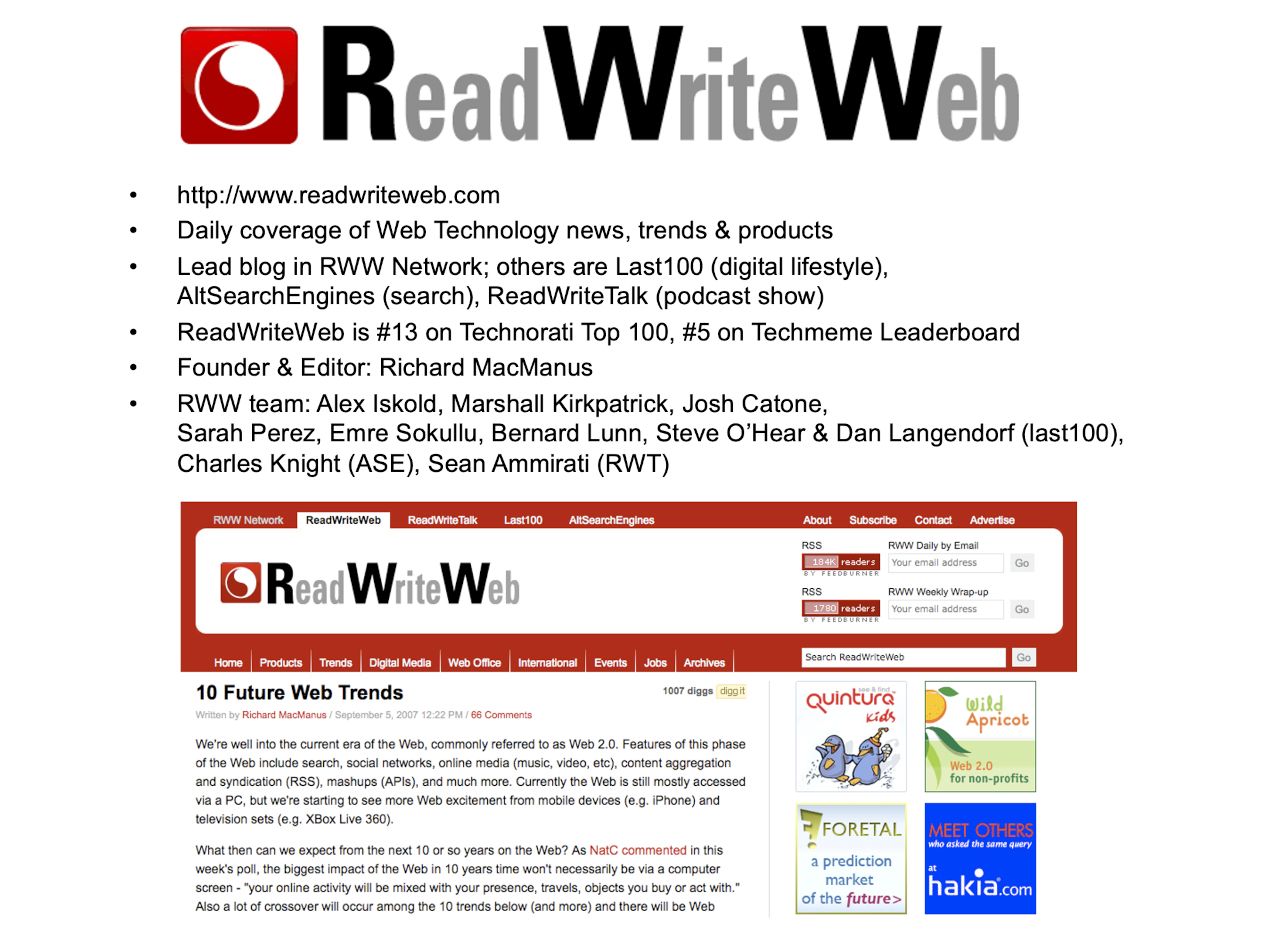
I hadn’t seriously thought of selling ReadWriteWeb before 2008, but I knew I needed help to expand the business. Early in the new year Sean Ammirati put me in touch with Bob Evans, a senior executive at CMP Technology, a media company and coproducer of the Web 2.0 conferences. On a phone call while I was in San Francisco in January, Bob floated a potential acquisition. I didn’t know what to think at this point, but I was curious to see where the discussions would lead.
CMP’s main tech-media property was Information Week, which had been one of the leading industry magazines during the 1980s and 1990s. Information Week was still a print magazine in early 2008, and its accompanying website was part of something called the TechWeb Network. TechWeb.com itself was an IT news website, but it didn’t have any of the personality that RWW, TechCrunch, and Mashable had. So I saw that RWW would be an attractive candidate for CMP’s lineup of tech publications.
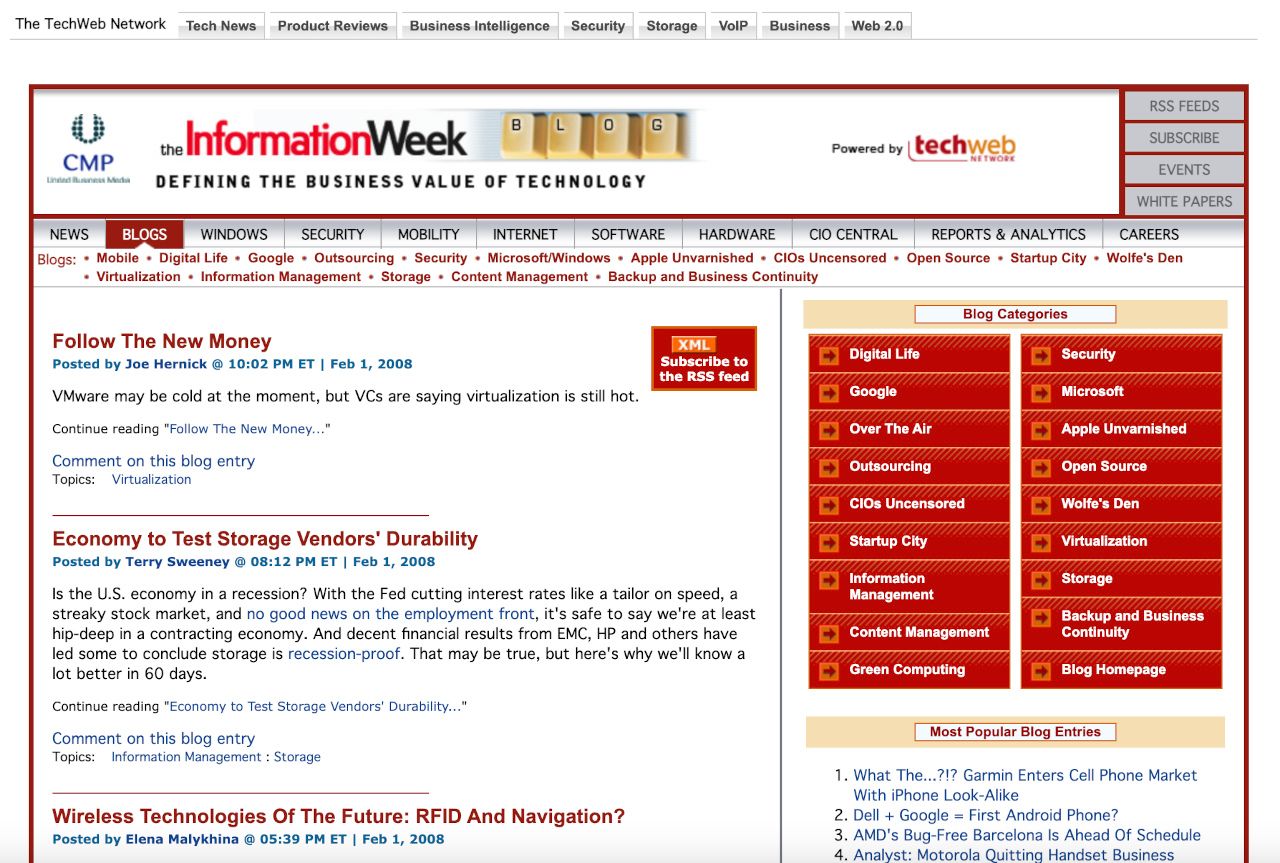
I signed a nondisclosure agreement, and during February I shared my latest business data with Bob and Fritz Nelson, one of CMP’s business development people. I was still rather green on these matters, but I thought the figures for RWW looked good. Revenue had increased nearly twofold since April 2007, for example, and it was on track to double year over year. Likewise, the second half of 2007 had proven to be a boon in traffic growth.
At the end of February, CMP’s owner—a public company called United Business Media plc (UBM)—announced a restructure of CMP into four separate, independent units. Bob and Fritz would now be working in the TechWeb division, whose CEO would be Tony Uphoff. I wasn’t sure if this would impact our acquisition talks, but Fritz said it gave them “more focus and autonomy, including in pursuing our partnership.”
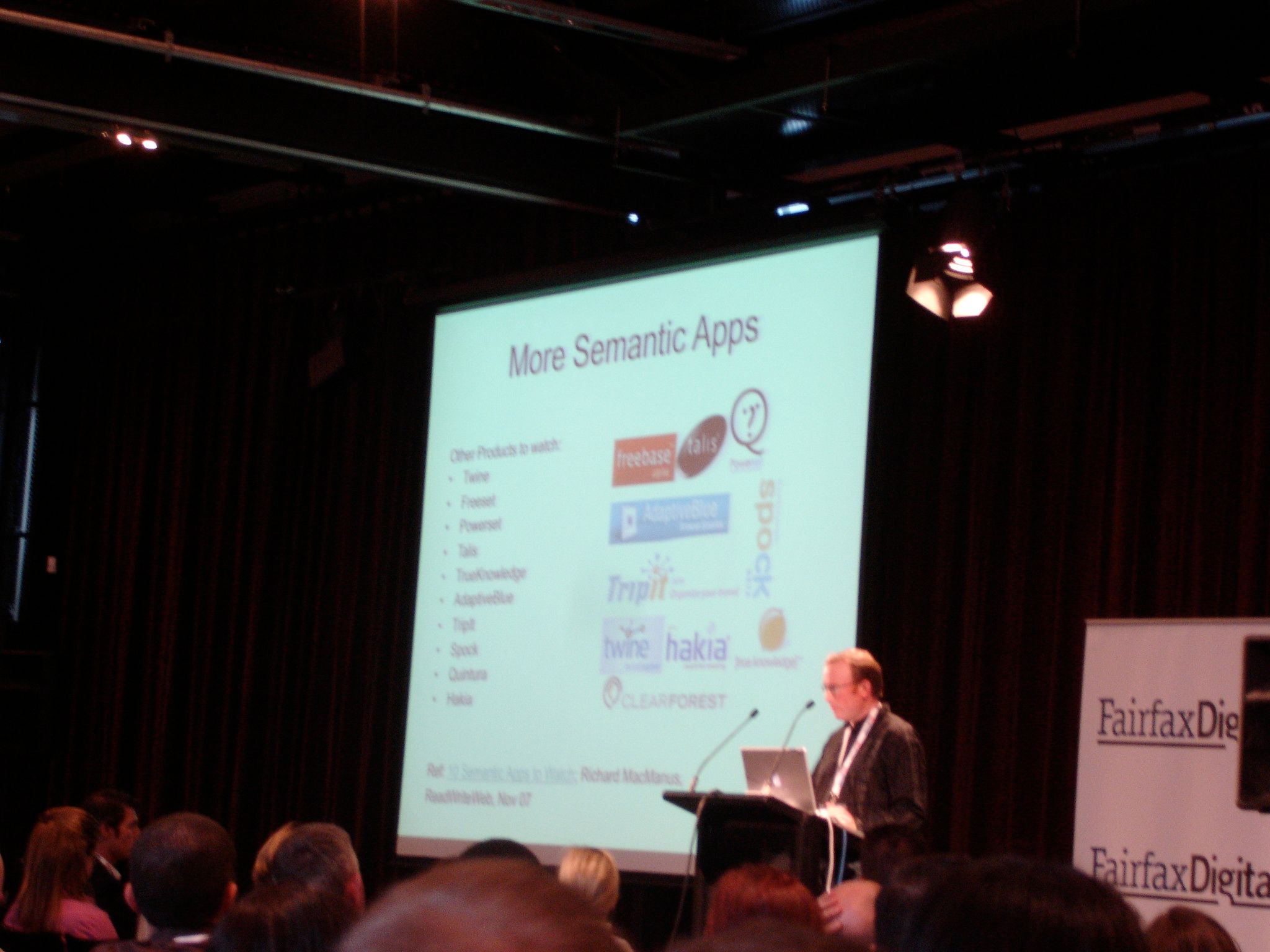
By mid-March discussions had progressed well, but I still didn’t have any idea of what their acquisition offer might be. I was promised “some early ballpark numbers” on March 21, ahead of my planned trip to the Web 2.0 Expo in mid-April. Fritz also floated the idea of announcing the acquisition at the conference. It was heady stuff, talking about being acquired by the company that coproduced the event. But I was already out of my depth, and I had no idea how to value RWW. So to help me with that, I reached out to one of RWW’s regular contributors, Bernard Lunn.
I didn’t know Bernard well at this time—only that he was a middle-aged guy who lived somewhere in the New York region, and for the past few decades he had worked for various B2B media companies I’d never heard of. But he seemed knowledgeable, and Alex Iskold had met and vouched for him. The consulting rate Bernard asked for seemed high to me, at $200 per hour, but I knew it would cost even more to go to a big accounting firm for a valuation. So I capped the hours at twenty and we went ahead.
I also asked Bernard to give me his advice on a “go it alone” plan. I already had a rough plan for this—Bernard, Alex, and Sean had helped me with that over the previous months—but I wanted to flesh it out more. Basically, if the acquisition didn’t work out, I was looking to bring on someone to run the business and operations side while I focused on editorial and overall strategy. I also noted my thoughts on bringing Marshall and Josh on full-time, the former in an executive capacity—I suggested the title VP of content development, as I wanted to expand the premium-content side of RWW. I had questions regarding equity structure, salaries, and so on—all of which I asked Bernard to report back on.
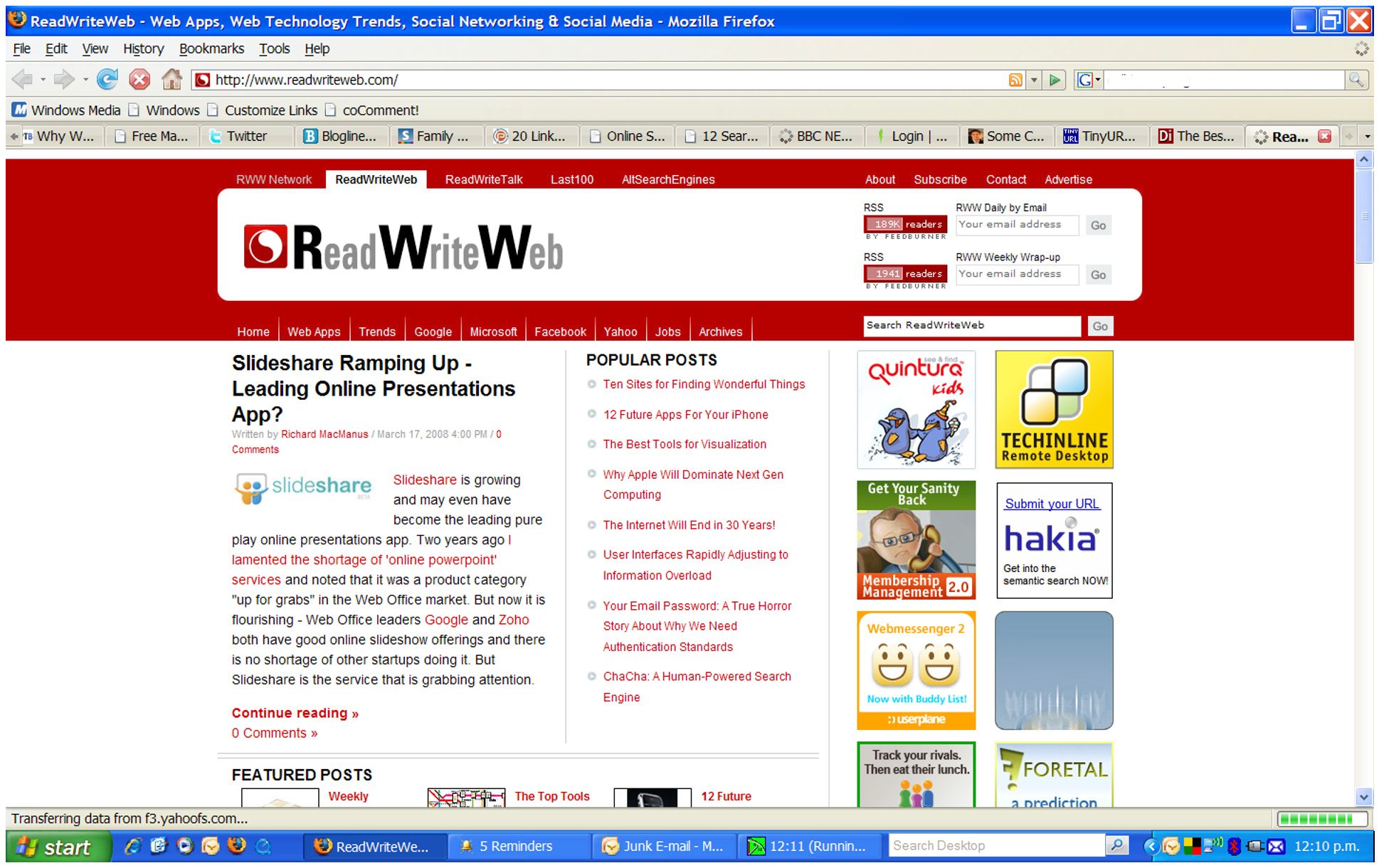
Bernard started with the go-it-alone plan first, so I didn’t yet know his thoughts on valuation by the time CMP finally made their first offer, on March 26, of $1 million upfront and a figure “in the range of about $2m” over an earn-out period of three years. I had no context for what a good offer looked like for a young business like RWW, but if this was a ballpark figure, then it felt like a ground ball to first base.
Fortunately, I now had another wooer! CMP’s rival in IT news, Ziff Davis Enterprise Group (ZDE), also expressed an interest in acquiring RWW. Earlier in March I’d been introduced to Insight Partners, the private equity firm that had bought ZDE the year before. That came via a media industry veteran who had worked for CMP for twenty years but was now at ZDE as a consultant: Mike Azzara. Sean had introduced us in November; I was discovering that the American IT media world was a very small one.
I’d been discussing with Mike the possibility of him joining RWW on the business side, perhaps as my much-needed COO, but his salary demand was too steep. Instead, Mike introduced me by email to Kobi Levy, an employee at Insight Partners. I had no clue what a private equity firm might do with a small business like RWW, but I knew that having two companies competing to acquire it was a good thing. Especially since, between them, CMP and ZDE owned most of the popular IT publications of the 1990s into the early 2000s. CMP had Information Week; ZDE had eWeek. Both needed an injection of young tech-media blood, and RWW was a perfect fit.
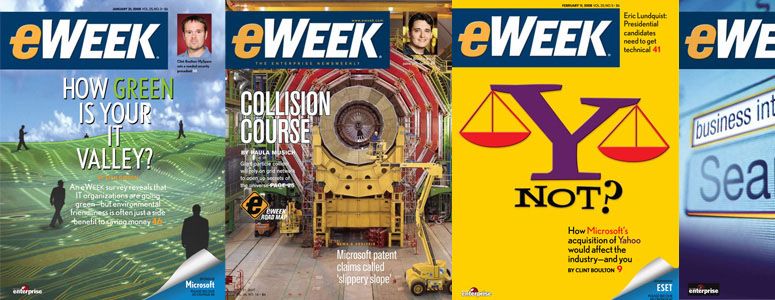
When I ran CMP’s proposed deal past Bernard, he agreed it was a lowball offer. He suggested I hold out for more and ask for 50 percent upfront. He added, “You don’t need to sell—you are profitable and growing—and I believe there are many ways to build more value organically.”
It was good advice, so that’s what I took back to CMP. While they were considering their next move, Bernard and I attempted to get an offer on the table from ZDE. We did a call with Kobi, who I had since discovered was a junior “associate” at Insight, and Azzara, who had by now joined ZDE full-time as its senior VP of product management. As expected, on the phone they were vague about what the offer would be, but I got the impression they wanted me to run their fledgling blog network on salary.
A couple of days later I got a printed offer from ZDE. However, it was even worse than the CMP one: $1 million upfront and a vague profit-sharing arrangement for two years based on “an additional split of incremental EBITDA.” I didn’t understand the earn-out part, but I knew that this wasn’t good enough. I said as much to ZDE in reply, and they asked how much I wanted for the business. Again, I consulted with Bernard, who suggested I go back with “a total valuation of $5m of which 50% would be due on closing.” We’d previously discussed $4 million as a minimum, although Bernard had rightly noted that he could come up with figures to justify whatever amount I told him I wanted.
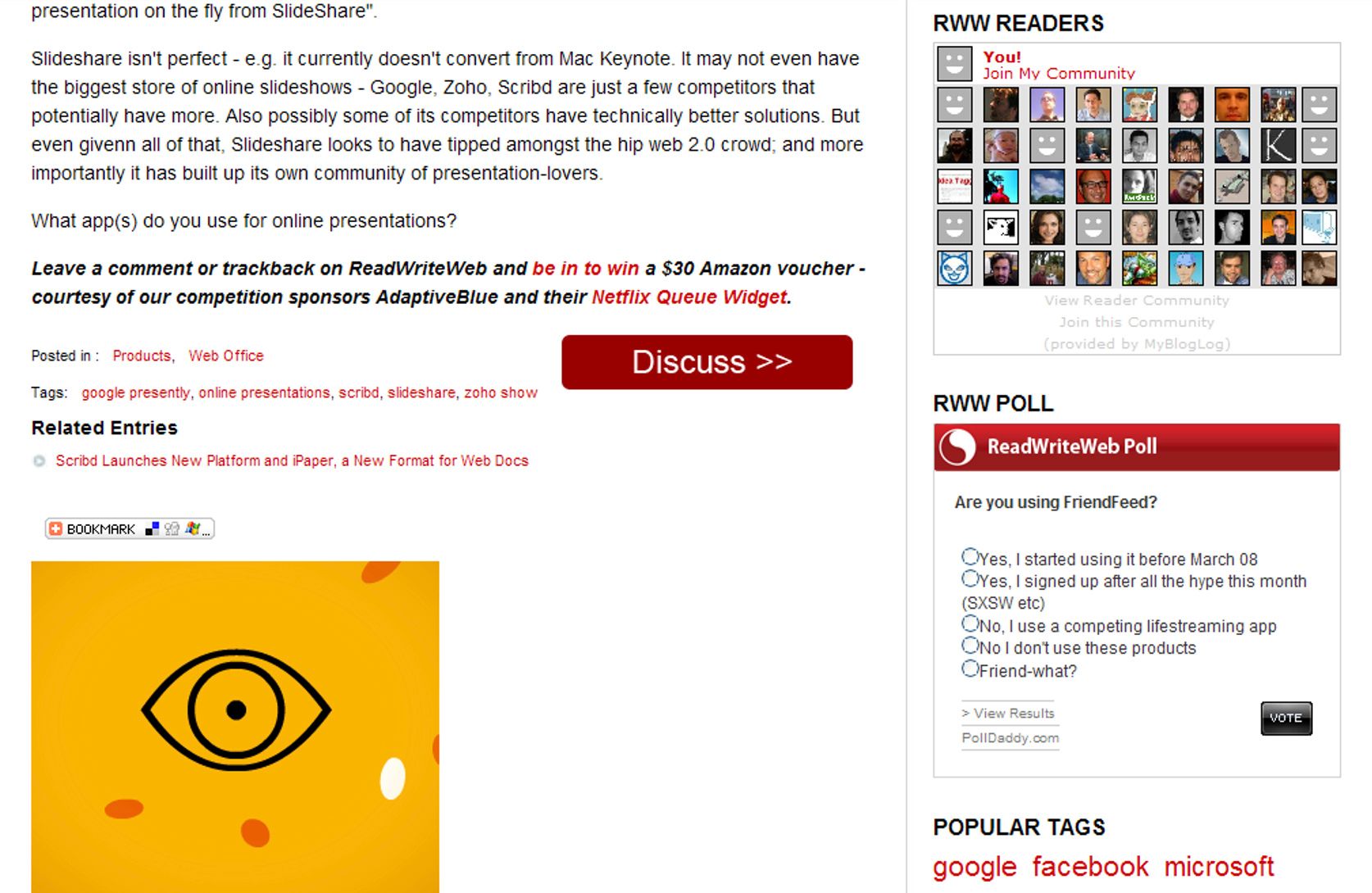
As I was about to reply to Kobi with my suggested offer, ZDE’s CEO, Steve Weitzner, jumped into the email conversation. “As an ex-editor who has been through the transformation from a print to an online culture a few times now,” he wrote, “I’m convinced it cannot be done without strong outside influences and I am anxious for ZDE to work with you.” He asked me to hold tight for a couple of days “while I work to sweeten the offer.”
I chatted with Alex Iskold on IM about the situation—I trusted his business instincts and I knew he was much savvier than me about these matters. He suggested I be upfront with both suitors about my $5 million expectations. Otherwise, he noted, they would likely continue to mess me around with variations on their lowball offers. Bernard agreed, so I gave ZDE the guidance.
ZDE promptly came back with a revised offer: $2 million upfront and an additional $2 million over two years based on “mutually agreed upon targets.” The devil would surely be in the details of the earn-out, but I was pleased to get in the range of what I wanted. It also gave me the opportunity to go back to CMP and tell them I’d received a better offer. I gave them the same expectation note I’d given to ZDE.
CMP were slow to reply, but after I had held off ZDE for more than a week, Fritz emailed me: $2 million upfront plus “additional considerations payable over the next 2 years based on performance,” with a maximum of $5 million in total. He warned that this wasn’t an official offer, as the UBM head office would have to sign off on it. Regardless, the numbers sounded promising—although it did seem like the extra $3 million would be based on aggressive profit targets.
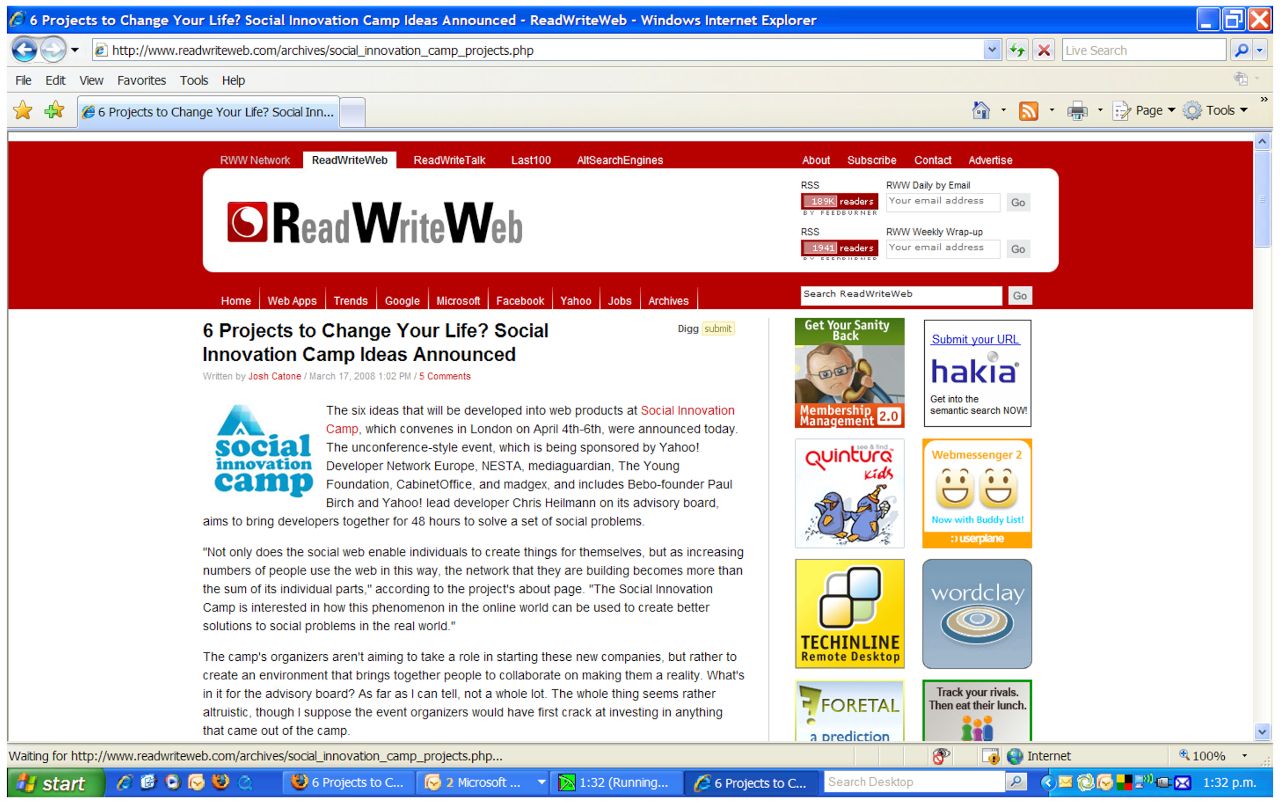
My main concern with both deals was how much control I would have in achieving the earn-out targets, but I figured we’d clarify that once I’d chosen between CMP and ZDE. The more straightforward offer, on paper, was ZDE’s. But I was leaning toward CMP, based on the rapport I’d built up with Bob and Fritz and on CMP’s involvement with the Web 2.0 conferences. I just needed more clarity from them, along with sign-off from their head office.
I was about to jump on a plane to San Francisco for the Web 2.0 Expo, so I suggested to Fritz, Bob, and Tony Uphoff (who I hadn’t yet heard from) that we meet at the event.
This post is part of my serialized book, Bubble Blog: From Outsider to Insider in Silicon Valley's Web 2.0 Revolution. View table of contents.
Next up: 028. 2008 Web 2.0 Expo, Where M&A Talks Continue
Buy the Book
My Web 2.0 memoir, Bubble Blog: From Outsider to Insider in Silicon Valley's Web 2.0 Revolution, is now available to purchase:
- Paperback, US$19.99: Amazon; Bookshop.org
- eBook, US$9.99: Amazon Kindle Store; Apple Books; Google Play
Or search for "Bubble Blog MacManus" on your local online bookstore.